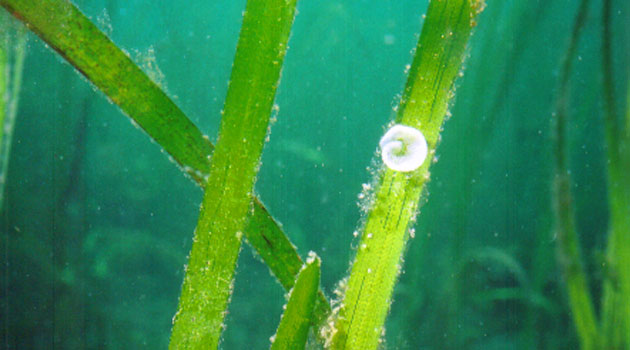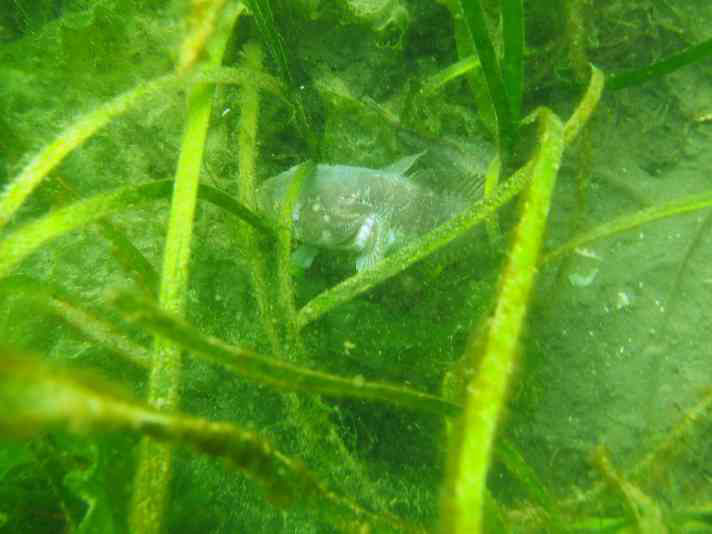Eelgrass Restoration and Stewardship 2009-2010 Materials for Children Photo Album July 2008 2005-2007 2005-2006 2004 – 2005 2005 – 2007 The Eelgrass Restoration Project 2005-2007 is our current project and is funded by the Pacific Salmon Commission, Habitat Conservation Trust Fund and through eelgrass habitat compensation funds from British Columbia Conservation Foundation. This project aims to restore eelgrass habitat in the Cowichan estuary that has been heavily impacted through past industrial uses of the estuarine mudflats. Through this project we have been able to identify potential eelgrass restoration sites and donor beds and transplant eelgrass to suitable restoration sites. Interviews of First Nations elders and long-term residents have given project staff a good indication of the historical extent of eelgrass beds. Using this local knowledge and surveys of substrate types and the current location of eelgrass beds in the estuary, five restoration sites have been identified. Four test plots were transplanted in 2005 and results from those test plots will help to determine larger transplants in the spring and summer of 2006. Please check our website regularly for updates and notices of upcoming transplant dates or activities or call the CCLT office at 746-0227 for more details. Now that we are familiar with where the eelgrass beds are in the area, we will be working on some site assessments. We will be looking at potential sites for transplanting as well as existing beds where we can gather transplants. The site assessment research has two dimensions. We will be out in the field, sampling and measuring, and we are also working on gathering information to paint a historical picture of eelgrass in the Cowichan Bay. To do this we are seeking information or knowledge of eelgrass from the community. This may be a memory of where the eelgrass grew in the past, your grandma’s favourite recipe for eelgrass root shoot stew, or a theory on what might have caused its decline. Any anecdote or tale involving eelgrass in the bay is what we are looking for. We’d love to hear from you. Eelgrass Restoration meeting was held on Wednesday, June 8th. The meeting took place at the Mellowside Café in Cowichan Bay. Interviewing long term residents, fisherman, and other community members that have spent quite a bit of time in the Cowichan Bay has allowed us to understand what the Bay looked like in the past. We heard many great stories about octopus wrestling and harvesting crabs, flounder, skates and clams from the eelgrass beds. Thank you to everyone who helped put this record together. Putting the general locations of where eelgrass grew in the past, beside the present locations of eelgrass beds gives us an idea of where we should be transplanting eelgrass. Any inconsistencies in present and past locations have become potential transplant sites. For example, it seems that the North side of the Cowichan Bay, off Khenipson Rd, did have eelgrass in the 70’s and 80’s. At the present time there is none, but knowing that this area did support eelgrass in the past suggests it might be worth trying again. We will be looking at sites more carefully through the summer, exploring limiting factors, and testing the areas ability to support new growth. On June 26 the CCLT hosted an eelgrass ecology workshop with Nikki Wright from SeaChange Marine Conservation Society. Thank you to Nikki, and all our volunteers for attending. We all learned a lot about what role eelgrass plays in the ocean, and the environmental conditions it prefers. Proceeding to the beach, we managed to get our hands and feet wet looking at different types of eelgrass, and seeing some of the creatures that exist in the food web created by the eelgrass bed. Next on the agenda is a site assessment training workshop. Cynthia Durance from Precision Identification will be joining the Land Trust on July 23, in Cowichan Bay. Individual sites will be assessed with a series of criteria to determine whether the area will support eelgrass growth again. The day should take us out on a boat looking at the substrate, elevation, salinity, current velocity, available light, and pH of potential transplant sites. After this analysis we should have a firm idea of where to plant. The following week, July 31, a test plot of about 100 eelgrass transplants will be rooted in a selected site. In the spring of next year there will be a larger transplant done, putting the transplants in a new location right before the most productive time of year. Partners and Community Support for the Eelgrass Project include: Cowichan Valley Naturalists Society (CVNS) Tom Rutherford, Community Advisor, DFO Public Conservation Assistance Fund Rob Russell, Habitat Biologist, DFO Seagrass Conservation Working Group Duncan Divers Dr. Bill Austin, Khoyatan Marine Laboratory Cowichan Bay Kayak and Paddlesports Pacific Water Sports, Cowichan Bay Cowichan Tribes Cowichan River Stewardship Roundtable Peter Law, Ecosystem Biologist, MoE Cowichan Valley Regional District Cowichan Bay Improvement Association Cowichan Estuary Preservation Society Young Naturalists Streamkeepers Environmental Club, Frances Kelsey High School Environmental Club, Shawnigan Lake School Queen Margaret School Streamkeepers Koksilah School Streamkeepers CVRD Electoral Area D (Cowichan Bay) Parks and Recreation Commission


